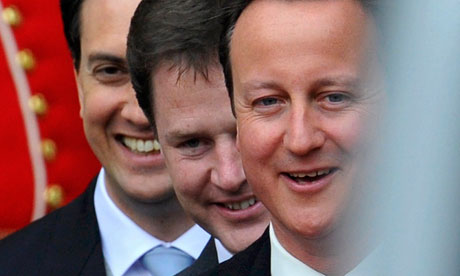It’s tough to hold on to good employees, but it shouldn’t be. Most of the mistakes that companies make are easily avoided. When you do make mistakes, your best employees are the first to go, because they have the most options.
If you can’t keep your best employees engaged, you can’t keep your best employees. While this should be common sense, it isn’t common enough. A survey by CEB found that one-third of star employees feel disengaged from their employer and are already looking for a new job.
When you lose good employees, they don’t disengage all at once. Instead, their interest in their jobs slowly dissipates. Michael Kibler, who has spent much of his career studying this phenomenon, refers to it as brownout. Like dying stars, star employees slowly lose their fire for their jobs.
“Brownout is different from burnout because workers afflicted by it are not in obvious crisis,” Kibler said. “They seem to be performing fine: putting in massive hours, grinding out work while contributing to teams, and saying all the right things in meetings. However, they are operating in a silent state of continual overwhelm, and the predictable consequence is disengagement.”
In order to prevent brownout and to retain top talent, companies and managers must understand what they’re doing that contributes to this slow fade. The following practices are the worst offenders, and they must be abolished if you’re going to hang on to good employees.
They make a lot of stupid rules.
Companies need to have rules—that’s a given—but they don’t have to be shortsighted and lazy attempts at creating order. Whether it’s an overzealous attendance policy or taking employees’ frequent flier miles, even a couple of unnecessary rules can drive people crazy. When good employees feel like big brother is watching, they’ll find someplace else to work.
They treat everyone equally.
While this tactic works with school children, the workplace ought to function differently. Treating everyone equally shows your top performers that no matter how high they perform (and, typically, top performers are work horses), they will be treated the same as the bozo who does nothing more than punch the clock.
They tolerate poor performance.
It’s said that in jazz bands, the band is only as good as the worst player; no matter how great some members may be, everyone hears the worst player. The same goes for a company. When you permit weak links to exist without consequence, they drag everyone else down, especially your top performers.
It’s said that in jazz bands, the band is only as good as the worst player; no matter how great some members may be, everyone hears the worst player. The same goes for a company. When you permit weak links to exist without consequence, they drag everyone else down, especially your top performers.
They don’t recognize accomplishments.
It’s easy to underestimate the power of a pat on the back, especially with top performers who are intrinsically motivated. Everyone likes kudos, none more so than those who work hard and give their all. Rewarding individual accomplishments shows that you’re paying attention. Managers need to communicate with their people to find out what makes them feel good (for some, it’s a raise; for others, it’s public recognition) and then to reward them for a job well done. With top performers, this will happen often if you’re doing it right.
It’s easy to underestimate the power of a pat on the back, especially with top performers who are intrinsically motivated. Everyone likes kudos, none more so than those who work hard and give their all. Rewarding individual accomplishments shows that you’re paying attention. Managers need to communicate with their people to find out what makes them feel good (for some, it’s a raise; for others, it’s public recognition) and then to reward them for a job well done. With top performers, this will happen often if you’re doing it right.
They don’t care about people.
They don’t show people the big picture.
It may seem efficient to simply send employees assignments and move on, but leaving out the big picture is a deal breaker for star performers. Star performers shoulder heavier loads because they genuinely care about their work, so their work must have a purpose. When they don’t know what that is, they feel alienated and aimless. When they aren’t given a purpose, they find one elsewhere.
They don’t let people pursue their passions.
Google mandates that employees spend at least 20% of their time doing “what they believe will benefit Google most.” While these passion projects make major contributions to marquis Google products, such as Gmail and AdSense, their biggest impact is in creating highly engaged Googlers. Talented employees are passionate. Providing opportunities for them to pursue their passions improves their productivity and job satisfaction, but many managers want people to work within a little box. These managers fear that productivity will decline if they let people expand their focus and pursue their passions. This fear is unfounded. Studies have shown that people who are able to pursue their passions at work experience flow, a euphoric state of mind that is five times more productive than the norm.
They don’t make things fun.
If people aren’t having fun at work, then you’re doing it wrong. People don’t give their all if they aren’t having fun, and fun is a major protector against brownout. The best companies to work for know the importance of letting employees loosen up a little. Google, for example, does just about everything it can to make work fun—free meals, bowling allies, and fitness classes, to name a few. The idea is simple: if work is fun, you’ll not only perform better, but you’ll stick around for longer hours and an even longer career.
Bringing It All Together
Managers tend to blame their turnover problems on everything under the sun while ignoring the crux of the matter: people don’t leave jobs; they leave managers.



